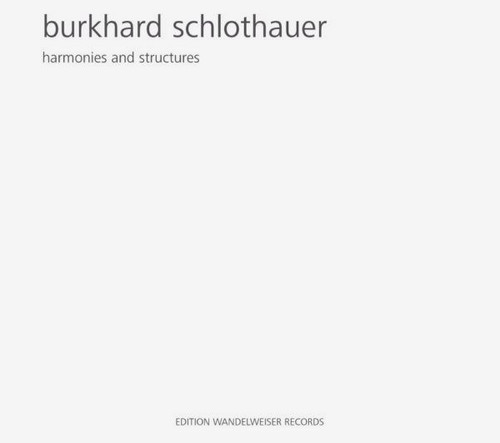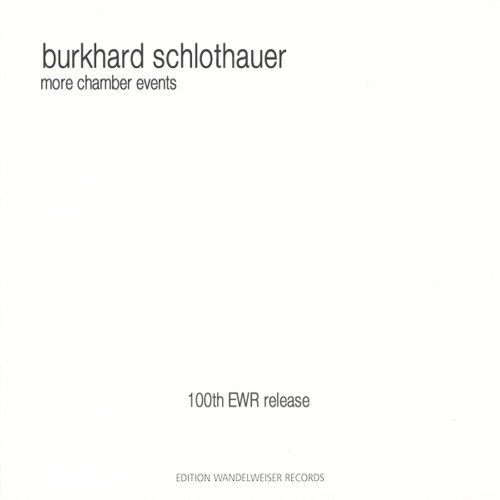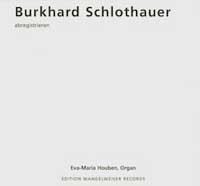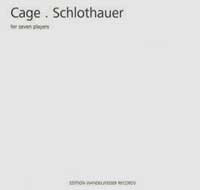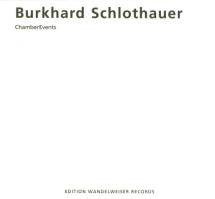Burkhard Schlothauer
Harmonies and Structures
Nine – for John Cage (2010) by Zeirkratzer with Reinhold Friedl (inside piano), Frank Gratkowski (bass clarinet), Hilary Jeffery (trombone), Hild Sofie Tafjord (horn), Burkhard Schlothauer (violin), Anton Lukoszevieze (cello), Ullrich Philipp (double bass), Marc Weiser (electric guitar), Christian Lillinger (percussion). The well-known Zagreb music biennale, which has been a hotspot for contemporary music for more than 30 years, asked Reinhold Friedl, musical director of Zeitkratzer, to perform …
More Chamber Events
Antoine Beuger (flute), Christoph Nicolaus (stone harp), Burkhard Schlothauer (trumpet, bass drum). Before starting the event series in 1995, I had been occupying myself with nonrepresentational minimalist painting, in which, rather than representing anything from the objective world, the artwork itself becomes an entity, an object of the world. Would it be possible to realize such a degree of abstraction in music? In this series of compositions for solo instruments each sound by itself is c…
abregistrieren
2005 release **
“select a sound of one or three tones within the range of an octavedistribute the pitches between the keyboards (use each pitch only once)select 3 – 31 stops from principals, flutes and reeds and distribute them evenly between the keyboards (do not use mixtures)play the pitches and hold the keys down (e.g. with lead weights)push the stop very slowly until you hear a change – then stop the movement, listen for a while and pull another register in the same way for a long time, on…
for seven players
Seven (1988), 15 similar events (2002) Let’s assume, that art music as a field of creative cognitive activity is interrelated with the scientific paradigm and that its structure, therefore, at least partially reflects the contemporary way of looking at the world. The essential paradigmatic elements of the early 21st century would then entail all kinds of demands on music. Having lost certainties, for example, the issue of probabilities should be broached. Fields of possibilities should be desi…
ChamberEvents
2005 release **
The works on this CD represent three different series of compositions, which I have been working on simultaneously in the last few years. Structurally, their individual parts resemble each other: all instruments play (rather) long sounds, each one followed by a pause.55 similar events plus two drummers drumming (1999) consists of two layers of events. On the one hand, seven instruments are organized ‘isophonically’ and with regular durations. Their sounds, each comprising the sam…
